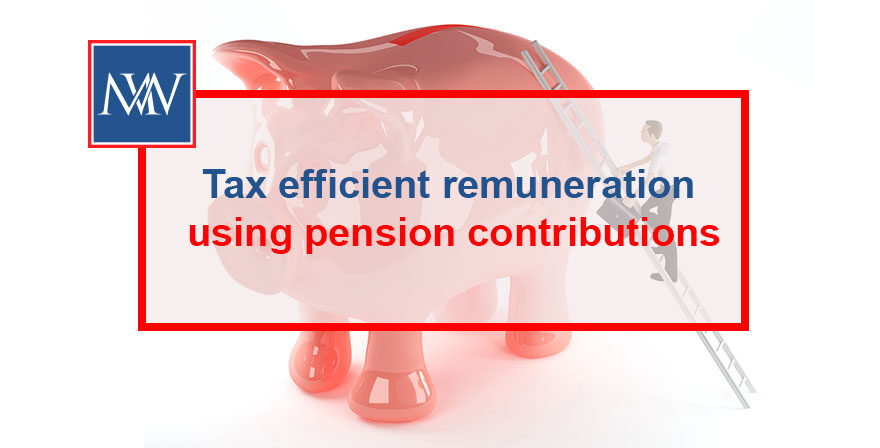
Tax efficient remuneration using pension contributions
Despite on-going speculation that the government will intervene at some point, for now, making contributions into a pension scheme continues to be a particularly tax-efficient form of savings.
Nearly everyone is entitled to receive tax relief on pension contributions up to an annual maximum – regardless of whether they pay tax or not. The maximum amount on which a non-taxpayer can currently receive basic rate tax relief is £3,600. So an individual can pay in £2,880 a year, but £3,600 will be the amount actually invested by the pension provider.
Moreover, subject to certain conditions, tax relief is still currently available on pension contributions at the highest rate of income tax paid, meaning that basic rate taxpayers get relief on contributions at 20%, higher rate taxpayers at 40%, and additional rate taxpayers at 45%. In Scotland, income tax is banded differently, and pension tax relief is applied in a slightly different way.
The total amount of tax relief available on pension contributions is calculated with reference to ‘relevant UK earnings’. If you own a limited company and you take both salary and dividends, the dividends do not count as ‘relevant UK earnings’. This means that if you take a small salary and a large dividend from your company, your pension tax relief limit will be low – tax charges will apply if the limit is exceeded.
If you want to increase your tax-free contributions limit, you could consider either increasing the amount of salary you take from the company (to increase your ‘relevant UK earnings’), or making the pension contribution directly from your company as an employer contribution. Making an employer contribution has additional advantages.
Employer contributions
Qualifying employer tax-efficient contributions count as allowable business expenses, so the company could currently save up to 19% in corporation tax. In order to qualify for a deduction, the pension contributions must be ‘wholly and exclusively’ for the purposes of business. HMRC will check for evidence that this is the case, for example whether other employees are receiving comparable remuneration packages.
Another advantage of making a company contribution is that employer National Insurance Contributions will not be payable on the contributions made, saving the company up to 13.8% on the contribution amount.
This means that the company can potentially save up to 32.8% by paying money directly into your pension rather than paying money in the form of a salary. Depending on your circumstances, this may or may not be more beneficial to you rather than paying personal pension contributions.
Employee benefits
An employer-provided pension can be a significant benefit. Employers can make contributions to occupational or personal pension plans without triggering a tax charge. This can significantly enhance an employee’s remuneration package and is a tax-efficient way of rewarding employees. It is also worth noting that, subject to a couple of conditions, there is a tax exemption covering the first £500 worth of pension advice paid for by an employer. The exemption covers advice not only for pensions but also on the general financial and tax issues relating to pensions.
Pension inequality
The government is currently reviewing feedback from a consultation on pensions tax relief administration, particularly in relation to an anomaly in the tax rules whereby people on low incomes may pay 25% more for their pension contributions due to the way their employers’ pension scheme operates. It is likely that there will be some modification to the rules to iron out this issue. Whether there will be wider-ranging changes or restrictions on pensions tax relief remains to be seen, but it is recommended that anyone considering topping up their pension pot should think about doing it sooner rather than later.
For more information on tax-efficient remuneration using pension contributions
Need Accountancy Support?
For information on bespoke training, or if you have any other questions for Makesworth Accountant, please fill in your details below




















 148
148